Premium Bedding Fabric: Cotton, Polyester & Extra Wide Options
Unveiling the Excellence of Bedding Fabric: A Deep Dive for B2B Procurement
In the discerning world of hospitality, healthcare, and high-end home textiles, the choice of bedding fabric is paramount. It dictates not only comfort and aesthetic appeal but also durability, hygiene, and operational efficiency. As a critical component influencing customer satisfaction and long-term cost-effectiveness, understanding the intricate details of textile engineering behind superior fabrics is essential for B2B decision-makers. This comprehensive guide explores the multifaceted aspects of high-quality textiles, with a particular focus on the robust and versatile T250 plain Extra-wide bedding fabric, designed to meet the rigorous demands of professional environments.
We delve into the latest industry trends, detailed technical specifications, advanced manufacturing processes, and strategic application scenarios, providing the insights necessary to make informed procurement choices that elevate your product offerings and operational standards. From material science to thread count precision, every element contributes to the overall performance and perceived value of the final product.
Understanding & Bedding Fabric: Industry Trends and Technical Specifications
The textile industry is continually evolving, driven by innovation in materials, processing techniques, and consumer expectations. Current trends in bedding fabric emphasize sustainability, enhanced functional properties such as moisture-wicking and anti-microbial treatments, and the increasing demand for specialized widths like `extra wide fabric` to accommodate modern bedding dimensions. The T250 plain Extra-wide bedding fabric exemplifies these advancements, offering a blend of high thread count density (T250 refers to 250 threads per square inch), robust plain weave, and a generous width that minimizes seams and maximizes efficiency in manufacturing finished bedding products.
This `bed sheet fabric` is engineered to provide superior softness and breathability while maintaining exceptional strength and dimensional stability after repeated industrial laundering cycles. Its composition, typically a premium `cotton bed sheet fabric` blend or high-quality `polyester fabric` blend, is carefully selected to balance comfort with practical durability, making it ideal for high-traffic environments where longevity and ease of maintenance are critical. The technical parameters of such fabrics are meticulously controlled to ensure consistent quality and performance across large production batches, a crucial factor for B2B purchasers.
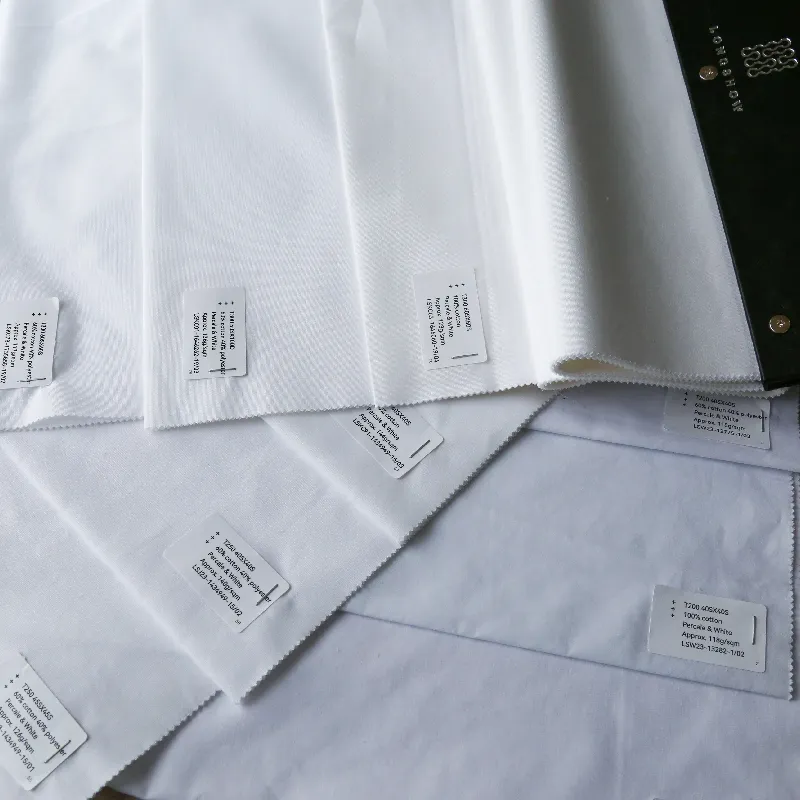
Key performance indicators for `bedding fabric` include thread count, fabric weight (GSM - grams per square meter), shrinkage rate, pilling resistance, colorfastness to washing and light, and tear strength. These metrics are vital for assessing a fabric's suitability for specific applications and ensuring compliance with industry standards. For instance, a T250 count ensures a denser, smoother surface, translating to enhanced comfort and a more luxurious feel compared to lower thread counts, while contributing to the fabric's overall lifespan and aesthetic retention.
Key Bedding Fabric Parameters Comparison
| Parameter | T250 Plain Bedding Fabric (Typical) | General Hotel Fabric (T180-T200) | Consumer Grade (T150) |
|---|---|---|---|
| Thread Count | 250 TC | 180-200 TC | 150 TC |
| Material Composition | 100% Cotton, CVC, or T/C (60/40, 50/50 blends) | Cotton/Polyester Blends | Varying Cotton/Synthetic Blends |
| Weave Type | Plain Weave (Percal) | Plain or Twill Weave | Plain or Open Weave |
| Typical Width | Up to 320 cm (126 inches) - Extra Wide | Up to 280 cm (110 inches) | Up to 250 cm (98 inches) |
| Fabric Weight (GSM) | 120-135 GSM | 110-125 GSM | 90-110 GSM |
| Shrinkage Rate | <3% (Woven), <5% (Knit) | 3-5% | >5% |
| Color Fastness (to washing) | Grade 4-5 | Grade 3-4 | Grade 2-3 |
| Pilling Resistance | Grade 4-5 (ISO 12945-2) | Grade 3-4 | Grade 2-3 |
This table illustrates how the T250 plain bedding fabric excels in key performance areas, signifying its suitability for demanding commercial applications. The `bed sheet fabric` is designed for longevity and ease of care, directly contributing to reduced replacement costs and streamlined laundry operations for large-scale users.
The Science of Textile: Manufacturing Process of High-Quality Bedding Fabric
The journey of a premium bedding fabric from raw fiber to finished product is a sophisticated process involving several critical stages, each rigorously controlled to ensure superior quality and consistency. The manufacturing of `bed sheet fabric` typically commences with fiber preparation, where raw cotton or polyester staples are cleaned, carded, and drawn into continuous slivers. These slivers are then spun into yarns of specific counts and twists, optimized for strength and uniformity. For a high-quality product like the T250 plain Extra-wide bedding fabric, particular attention is paid to yarn quality, as it directly impacts the final fabric's hand feel, durability, and appearance.
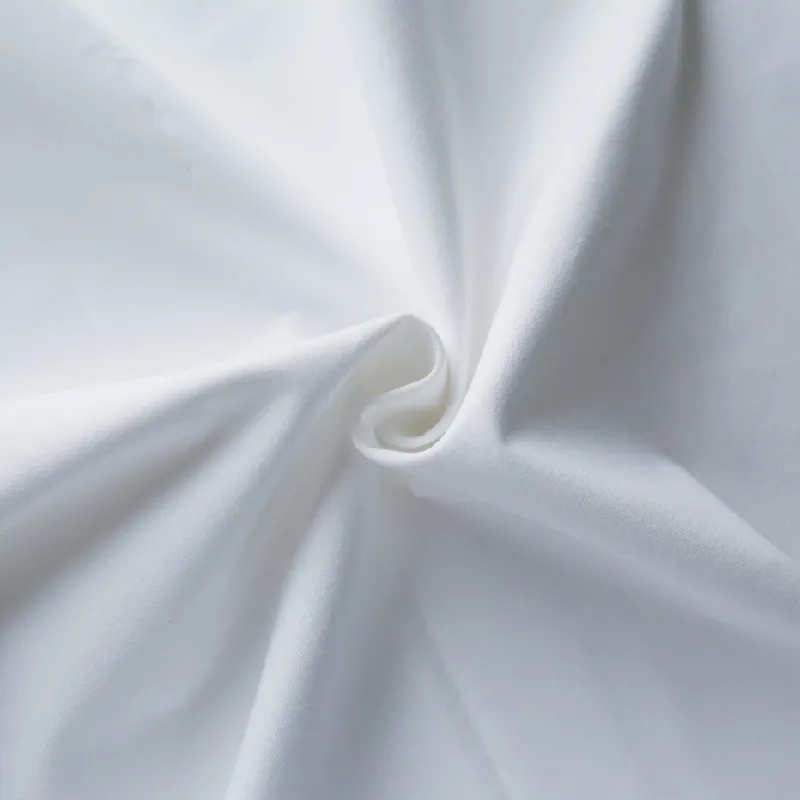
Following spinning, the yarns undergo weaving. For plain weave structures, interlacing warp (longitudinal) and weft (transverse) yarns is done in a simple over-and-under pattern, creating a durable and stable fabric. Modern textile mills utilize high-speed air-jet or rapier looms to achieve precise thread counts and consistent tension, crucial for `extra wide fabric` production. Post-weaving, the greige (unbleached, undyed) fabric is subjected to a series of wet processing steps: desizing, scouring, bleaching, and mercerization. Mercerization, in particular, enhances the strength, luster, and dye uptake of `cotton bed sheet fabric`, improving its overall performance and aesthetic.
Dyeing is then performed, followed by various finishing treatments tailored to the fabric's intended use. These can include calendering for smoothness and sheen, sanforization for shrinkage control, and specialized finishes for wrinkle resistance, anti-pilling properties, or moisture management. Throughout this entire process, stringent quality control measures are implemented, adhering to international standards such as ISO 9001 and specific textile testing protocols (e.g., ISO 105 for colorfastness, ISO 12945 for pilling). This meticulous attention to detail at every stage ensures that each meter of bedding fabric meets the high expectations of B2B clients, guaranteeing consistent quality, longevity, and performance.
Technical Advantages and Application Scenarios
The T250 plain Extra-wide bedding fabric offers a multitude of technical advantages that translate directly into operational benefits for commercial entities. Its high thread count contributes to exceptional durability and resistance to abrasion, significantly extending the lifespan of bedding products even under rigorous daily use and frequent industrial laundering. This inherent strength reduces replacement cycles, leading to substantial long-term cost savings. Furthermore, the plain weave construction of this `bed sheet fabric` ensures a smooth, uniform surface that resists pilling, maintaining its luxurious feel and pristine appearance over time. The choice between `cotton bed sheet fabric` and `polyester fabric` blends often hinges on a balance of desired tactile properties and specific performance requirements such as quick-drying or enhanced wrinkle resistance.

The `extra wide fabric` dimension is a significant advantage, particularly for producing king or super-king size sheets and duvet covers without the need for unsightly and uncomfortable seams. This not only enhances the aesthetic appeal but also improves fabric integrity, as seams are often points of weakness in industrial environments. Moreover, the superior color retention and low shrinkage rate of this bedding fabric ensure that the products maintain their professional look and fit, critical for branding and guest satisfaction in the hospitality sector. Its easy-care properties also streamline laundry operations, reducing energy consumption and labor costs.
Typical application scenarios for such high-performance bedding fabric include luxury hotels and resorts where guest comfort and perceived quality are paramount, healthcare facilities demanding stringent hygiene and frequent washing, and institutional settings where durability and cost-efficiency are key. The versatility of a plain bedding fabric also makes it an excellent base for various textile finishes and patterns, including subtle `ticking stripe bedding` designs, offering flexibility for diverse interior design schemes without compromising on fundamental performance characteristics.
Customization Solutions and Quality Assurance
Recognizing the diverse needs of B2B clients, leading manufacturers of bedding fabric offer extensive customization options, allowing businesses to tailor products precisely to their specifications. This includes variations in thread count beyond T250, custom material blends (e.g., specific `cotton bed sheet fabric` to `polyester fabric` ratios), bespoke colors (matched to Pantone or custom samples), and specialized finishes such as anti-wrinkle, anti-microbial, or flame-retardant treatments. The ability to source `extra wide fabric` in custom widths is particularly beneficial for manufacturers producing non-standard bedding sizes or seeking to optimize fabric yield during cutting.
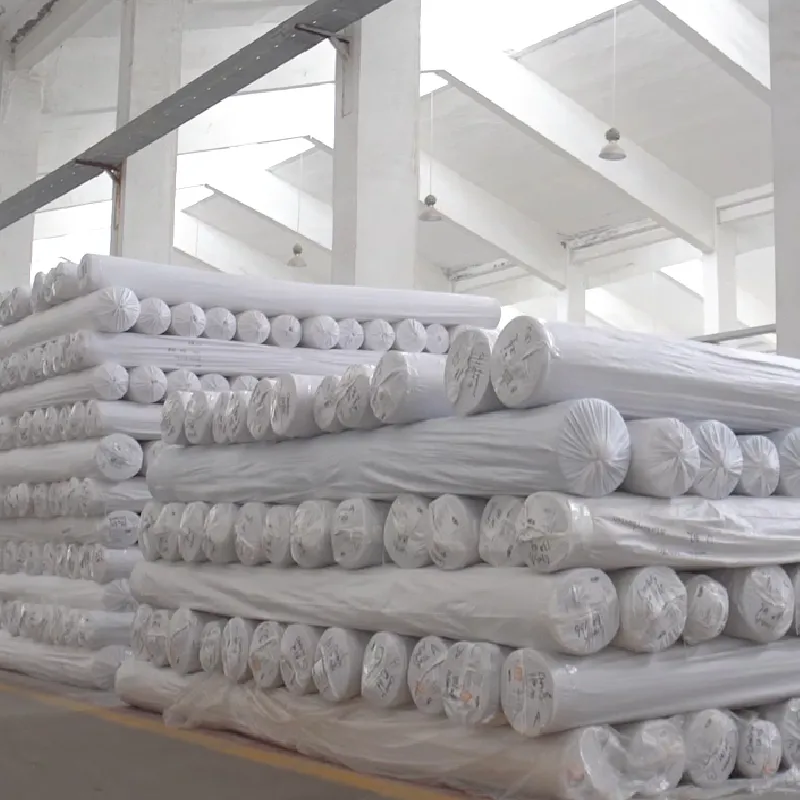
Quality assurance is foundational to delivering reliable bedding fabric solutions. Reputable suppliers adhere to rigorous quality management systems, often certified to ISO 9001, ensuring consistency from raw material sourcing to final dispatch. This includes multiple checkpoints for yarn quality, weaving tension, dye penetration, dimensional stability, and physical properties testing (e.g., tensile strength, tear resistance, pilling resistance). Laboratory testing, conducted in accordance with international standards like ASTM, AATCC, and ISO, provides objective data on product performance. This commitment to transparent and verifiable quality control builds trust and confidence among B2B partners, guaranteeing that every meter of `bed sheet fabric` meets agreed-upon specifications and performance benchmarks.
Beyond technical specifications, environmental and social compliance (e.g., OEKO-TEX Standard 100 certification for textile safety) is increasingly important, reflecting a growing industry trend towards responsible manufacturing. Partnering with a manufacturer that prioritizes both technical excellence and ethical production ensures a supply chain that aligns with modern corporate values and regulatory requirements.
Industry Benchmarks: Manufacturer Comparison
Selecting the right manufacturer for bedding fabric is a strategic decision that goes beyond price. Leading suppliers distinguish themselves through a combination of factors including long-standing industry experience, state-of-the-art manufacturing facilities, robust R&D capabilities, and an unwavering commitment to quality and customer service. While direct manufacturer comparisons by name are specific to individual sourcing efforts, general benchmarks can guide the evaluation process. A top-tier provider of `bed sheet fabric` will typically possess decades of experience in the textile industry, demonstrated by a proven track record of supplying major hotel chains, healthcare networks, and textile distributors globally. Their operational scale should allow for high-volume production while maintaining stringent quality control.

Technological investment is another key differentiator. Manufacturers employing advanced weaving looms, sophisticated dyeing equipment, and automated finishing lines are better positioned to produce consistent, high-performance fabrics like T250 plain Extra-wide bedding fabric. Furthermore, their material sourcing practices should be transparent, ensuring the use of high-grade raw materials, whether it's `cotton bed sheet fabric` or a specialized `polyester fabric`. Exceptional manufacturers also provide comprehensive technical support, from initial consultation and sample provision to post-sales service and problem-solving, acting as a true partner in their clients' success. Look for suppliers with strong certifications (e.g., ISO, OEKO-TEX) and clear communication channels, including detailed technical specifications and clear lead times.
The ability to offer customized solutions, from specific widths for `extra wide fabric` to unique weaves like `ticking stripe bedding`, signifies a manufacturer's flexibility and customer-centric approach. Ultimately, the best choice is a partner who can consistently deliver superior bedding fabric that aligns with your brand's quality standards and operational requirements, ensuring reliability and value over the long term.
Real-World Applications and Success Stories
The practical impact of choosing high-quality bedding fabric like the T250 plain Extra-wide variety is best illustrated through its successful implementation in diverse commercial settings. In the luxury hospitality sector, for instance, premier hotel chains regularly select this `bed sheet fabric` for its superior softness, durability, and crisp appearance. Guests consistently report enhanced comfort, leading to improved satisfaction scores and repeat bookings. The fabric's ability to withstand hundreds of washes without significant degradation or fading ensures that rooms maintain a pristine, inviting aesthetic day after day, directly reflecting on the hotel's brand reputation. One prominent five-star hotel group, after transitioning to an extra-wide T250 bedding fabric, reported a 15% reduction in linen replacement costs over a three-year period, alongside a notable increase in positive guest feedback regarding bedding comfort and quality.
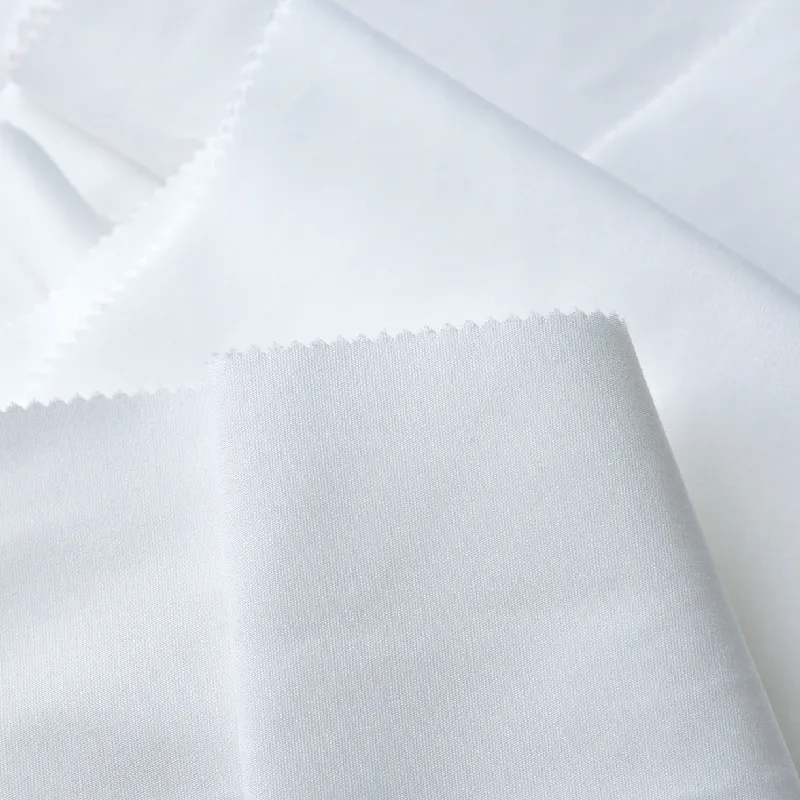
Similarly, in healthcare environments, where hygiene and frequent sanitation are paramount, the robustness and easy-care properties of this `polyester fabric` or high-blend `cotton bed sheet fabric` are invaluable. Hospitals and long-term care facilities benefit from its resistance to shrinkage and its ability to maintain integrity through rigorous thermal disinfection processes. This contributes to a safer, more hygienic patient environment and reduces the workload for laundry services. Moreover, the availability of `extra wide fabric` simplifies the creation of specialized medical linens, enhancing efficiency in manufacturing. The subtle elegance of a plain weave, or even specialized designs like `ticking stripe bedding`, allows for a professional yet comforting aesthetic, vital in creating a therapeutic environment.
These real-world applications underscore the tangible advantages of investing in premium bedding fabric. Beyond anecdotal evidence, quantifiable benefits in terms of cost savings, operational efficiency, and enhanced user experience solidify its position as a preferred choice for discerning B2B buyers across various industries.
Trust & Support: FAQs, Delivery & Warranty
Building long-term trust in B2B relationships hinges on clear communication, reliable support, and transparent policies. When considering bedding fabric procurement, understanding a supplier's frequently asked questions, delivery logistics, and warranty commitments is crucial for seamless operations.
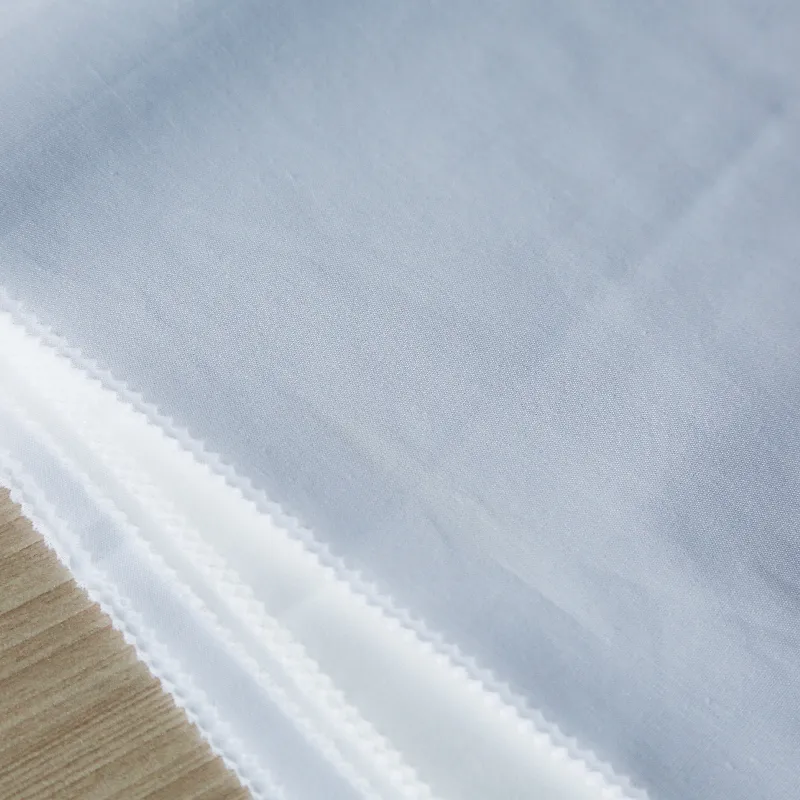
Frequently Asked Questions (FAQs)
-
Q: What is the minimum order quantity (MOQ) for T250 plain Extra-wide bedding fabric?
A: MOQs typically vary based on fabric type, color, and customization. For standard T250 plain `bed sheet fabric`, MOQs may start from 3,000 to 5,000 meters, but specific requirements can be discussed directly with our sales team.
-
Q: Can I request samples of the fabric before placing a bulk order?
A: Yes, we highly recommend requesting samples to assess the fabric's quality, hand-feel, and color accuracy. Sample swatches are generally available upon request.
-
Q: What are the typical lead times for custom orders of extra wide fabric?
A: Lead times for custom `extra wide fabric` orders, including specialized blends of `cotton bed sheet fabric` or specific finishes, usually range from 4-8 weeks depending on the order size and current production schedule. Standard items might have shorter lead times.
-
Q: How does the T250 plain fabric perform after repeated industrial washing?
A: The T250 plain bedding fabric is specifically engineered for commercial environments, exhibiting excellent durability, minimal shrinkage, and superior colorfastness even after numerous industrial laundering cycles. Its high thread count contributes to its resilience.
Delivery & Logistics
We provide comprehensive delivery solutions, working with established logistics partners to ensure timely and secure shipment of your bedding fabric orders. Our team assists with customs documentation and optimizes shipping routes to minimize transit times and costs. For bulk orders of `extra wide fabric`, efficient packaging and loading protocols are followed to ensure product integrity upon arrival. Delivery timelines are provided during the order confirmation process and are consistently communicated throughout the shipping journey.
Quality Assurance & Warranty
Our commitment to quality is upheld by stringent ISO-certified manufacturing processes and rigorous internal testing. Every batch of `bed sheet fabric`, whether `cotton bed sheet fabric` or `polyester fabric`, undergoes thorough inspection to meet our high standards. We offer a comprehensive warranty against manufacturing defects and deviations from agreed-upon specifications. Our dedicated customer support team is available to address any concerns or inquiries, ensuring a responsive and effective resolution. This robust support system underpins our promise of delivering not just fabric, but complete peace of mind for your bedding fabric needs.
Conclusion: The Strategic Advantage of Premium Bedding Fabric
The strategic selection of bedding fabric is a critical decision for any B2B entity in the hospitality, healthcare, or retail textile sectors. Opting for a high-quality product like the T250 plain Extra-wide bedding fabric offers a distinct competitive advantage, translating into enhanced comfort, superior durability, and significant long-term operational savings. Its engineered performance characteristics, from high thread count to `extra wide fabric` dimensions, directly address the rigorous demands of commercial applications.
By understanding the intricate manufacturing processes, technical parameters, and available customization options, businesses can make informed procurement choices that bolster their brand reputation and streamline their operations. Partnering with an authoritative manufacturer committed to quality assurance and comprehensive customer support ensures a reliable supply chain for all your bedding fabric needs, making it a sound investment for sustained success.
References
- International Organization for Standardization (ISO). (Various Standards related to Textile Testing).
- American Society for Testing and Materials (ASTM International). (Standards related to textile materials and testing).
- American Association of Textile Chemists and Colorists (AATCC). (Test Methods for Textile Materials).
- Textile Institute. (Academic journals and publications on textile science and technology).
- Oeko-Tex Association. (OEKO-TEX Standard 100 certification criteria for textile products).
-
Creating a Spa Day with Plush Waffle Bath RobesNewsAug.14, 2025
-
How to Cut Linen Maintenance Costs by 30% with Proper Polycotton IroningNewsAug.11, 2025
-
Elevating Comfort and Quality with the Right Bed LinenNewsJul.07, 2025
-
Bedding Essentials: From Percale Sheets to White Quilts, Finding Your Perfect Sleep HavenNewsJul.07, 2025
-
Choosing the Right Bedding for a Comfortable and Stylish BedroomNewsJul.07, 2025
-
Understanding the Diverse World of Towel TypesNewsMay.29, 2025
-
The Ultimate Comfort: Discover the Benefits of Polycotton SheetsNewsMay.29, 2025






